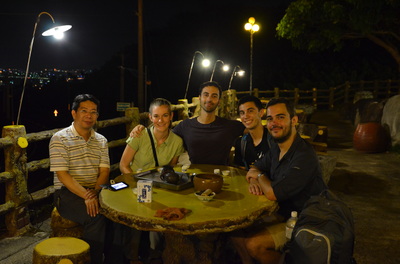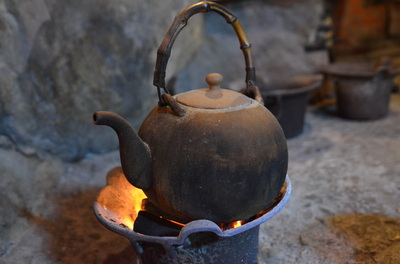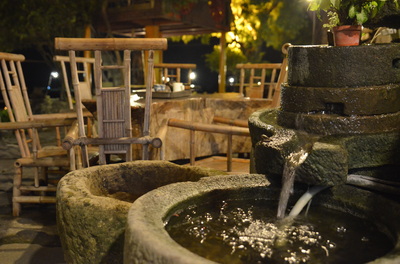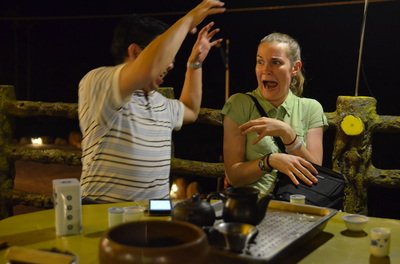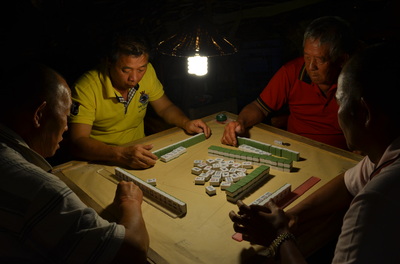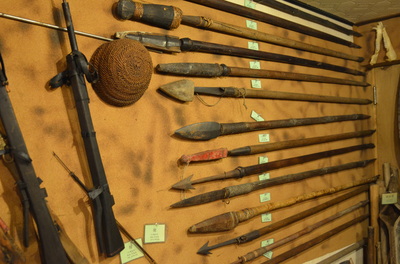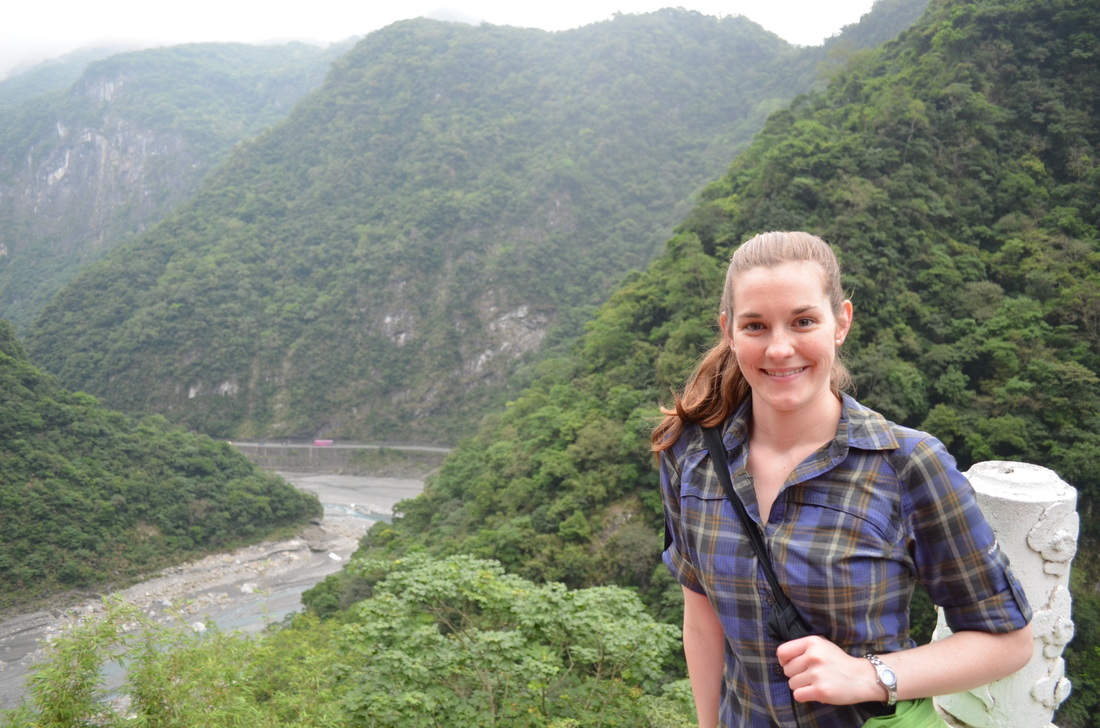Most of the day was dedicated to transit. Our host was at work, but luckily a week ago he gained a roommate, Mr. Stefano. We rang the bell and a very Italian man approached the door in his underwear. He had been practicing his singing and was quite surprised by our arrival. He was kind and offered us food, as he stated the food didn’t belong to him. He too had been a couchsurfer at Shihlung’s house. For the past several years he has been floating around Asia. He goes to a country and rents a room for a month and then moves on to a new location. Two or three times a year he goes to Japan for opera performances. The rest of the time his income comes from translating documents into Italian or from giving singing lessons. To say the least he is a character. There must be a genetic marker that most Italian men inherit that lead them to be incurable flirts. Apparently, of late he has been set loose on the local female population and has made many “friends”. Regardless, his company was enjoyable and he was very amusing. Speaking with him reminded me of how much I love Italy, even with all its quirks.
Shihlung is a Buddhist, but as he puts it, “I am a normal guy. I eat meat.” So he laughed when he discovered that out of his four guests three were vegetarian. Thus, he redirected us to a vegetarian restaurant instead of the famous beef noodle place he had intended to take us. Shihlung explained to us several different strands of Buddhism and told us about his work. He works at the only Museum of Prehistory in Taiwan. Stefano said that he thinks Shihlung is the most cultured person in Taitung and he is probably right. Shihlung’s home is absolutely beautiful. It is three stories and is filled with Buddhist artwork. He is also an excellent cook! He has taken classes in Japanese, Taiwanese, and Italian cooking. He has traveled to many countries, but most of his trips seem to have been to Japan. Luckily for me my next stop is Japan. He shared a lot of information with me and is thinking about joining me in the spring when I go back for the cherry blossoms.
After dinner we drove to a very unique tea house up in the hills above Taitung. The owner has many displays of aboriginal art and tools. We all enjoyed light conversation and explored the premises. Stefano and I spent some time discussing some differences between American and European cultures. He asked me if Americans think that European men are weak or feminine. I had never heard of that stereotype and commented that we really need more interaction with one another. It seems there are many strange misconceptions between cultures.
Shihlung is a Buddhist, but as he puts it, “I am a normal guy. I eat meat.” So he laughed when he discovered that out of his four guests three were vegetarian. Thus, he redirected us to a vegetarian restaurant instead of the famous beef noodle place he had intended to take us. Shihlung explained to us several different strands of Buddhism and told us about his work. He works at the only Museum of Prehistory in Taiwan. Stefano said that he thinks Shihlung is the most cultured person in Taitung and he is probably right. Shihlung’s home is absolutely beautiful. It is three stories and is filled with Buddhist artwork. He is also an excellent cook! He has taken classes in Japanese, Taiwanese, and Italian cooking. He has traveled to many countries, but most of his trips seem to have been to Japan. Luckily for me my next stop is Japan. He shared a lot of information with me and is thinking about joining me in the spring when I go back for the cherry blossoms.
After dinner we drove to a very unique tea house up in the hills above Taitung. The owner has many displays of aboriginal art and tools. We all enjoyed light conversation and explored the premises. Stefano and I spent some time discussing some differences between American and European cultures. He asked me if Americans think that European men are weak or feminine. I had never heard of that stereotype and commented that we really need more interaction with one another. It seems there are many strange misconceptions between cultures.
